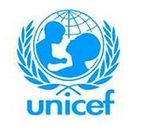UNICEF: Difference between revisions
Appearance
No edit summary |
No edit summary |
||
| Line 20: | Line 20: | ||
| linkedin = | | linkedin = | ||
| twitter = UNICEF | | twitter = UNICEF | ||
| keypeople = | | keypeople = [[Anthony Lake]], UNICEF Executive Director | ||
}} | }} | ||
'''UNICEF (United Nations Children Fund)''' is responsible in leading the advocacy in protecting the rights of children worldwide, to help meet their needs and to increase their opportunities to reach their full potential. The organization is focused on five major areas: Child Survival and Development, Basic Education and Gender Equality, HIV/AIDS Prevention and Treatment, Child Protection from Abuse, Exploitation and Violence and Policy Advocacy and Partnership. UNICEF supports and promotes the Convention on the Rights of the Child in more than 190 countries and territories through its country programmes and National Committees globally.<ref>[http://www.unicef.org/about/who/index_introduction.html About UNICEF-Who We Are]</ref> | |||
==References== | |||
{[reflist}} | |||
[[Category:Organizations]] | |||
__Notoc__ | |||
Revision as of 23:08, 29 May 2012
 | |
| Type: | Organization |
| Industry: | Public Services/Policy Dev't. |
| Founded: | 1946 |
| Founder(s): | United Nations |
| Headquarters: | UNHQ New York |
| Country: | USA |
| Website: | www.unicef.org |
| Facebook: | UNICEF |
| Twitter: | |
| Key People | |
| Anthony Lake, UNICEF Executive Director | |
UNICEF (United Nations Children Fund) is responsible in leading the advocacy in protecting the rights of children worldwide, to help meet their needs and to increase their opportunities to reach their full potential. The organization is focused on five major areas: Child Survival and Development, Basic Education and Gender Equality, HIV/AIDS Prevention and Treatment, Child Protection from Abuse, Exploitation and Violence and Policy Advocacy and Partnership. UNICEF supports and promotes the Convention on the Rights of the Child in more than 190 countries and territories through its country programmes and National Committees globally.[1]
References
{[reflist}}

